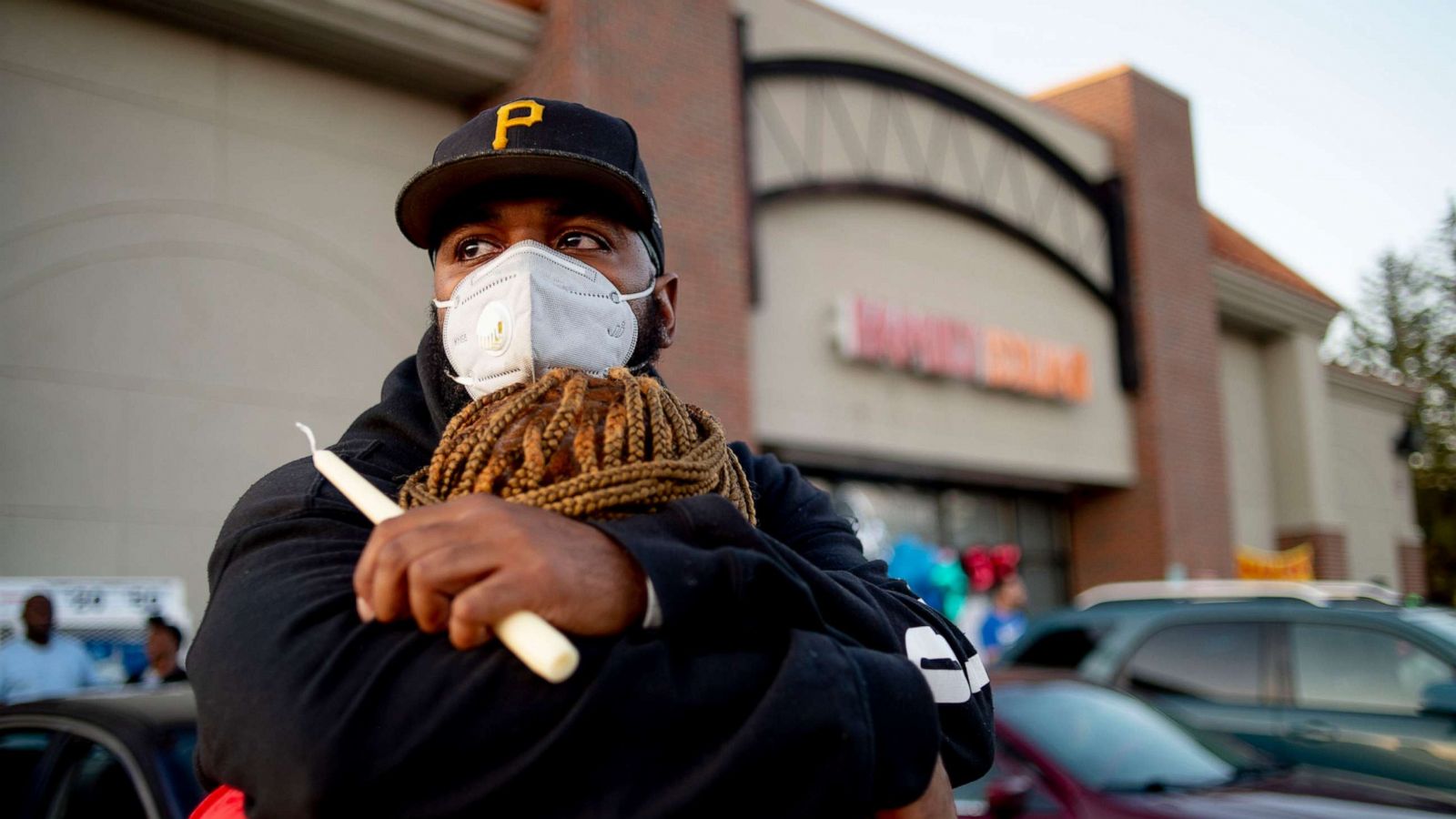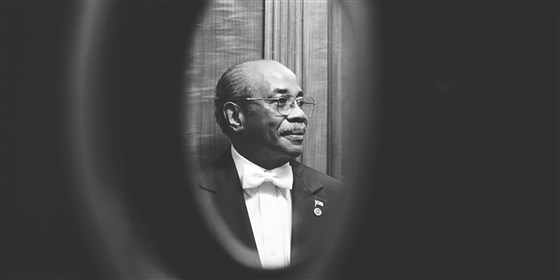
By Ryan W. Miller and Jessica Flores, USA TODAY
As the world reached 5 million confirmed coronavirus cases Thursday, the director of the U.S. Centers for Disease Control and Prevention said he can’t guarantee whether a second round of lockdowns is coming as a possible second wave of the virus looms.
The Labor Department also said another 2.4 million people filed initial unemployment benefit claims last week, and President Donald Trump’s former personal lawyer Michael Cohen was released from a New York federal prison because of the coronavirus pandemic.
The United States accounts for over a fifth of the 5 million global coronavirus cases with more than 1.5 million confirmed, according to the Johns Hopkins University data dashboard. More than 329,000 people have died globally; the U.S. death toll is at 93,500.
Our live blog is being updated throughout the day. Refresh for the latest news, and get updates in your inbox with The Daily Briefing. Scroll down for more details.
Here are some highlights to know Thursday:
- If social distancing in the U.S. had started two weeks before the time most people began staying at home, it could have prevented a stunning 54,000 deaths and 960,000 cases, researchers have found.
- Robert Redfield, director of the CDC, says the U.S. must be as “overprepared as possible” for a second wave of both lockdowns and infections.
- The CDC says the coronavirus “does not spread easily” on contaminated surfaces or objects, nor by animal-to-human contact, or vice-versa.
As states reopen, we’re answering your questions: Can your kids and grandkids visit? It’s not safe until community transmission has been eliminated in both areas and the groups getting together have no illness and have had no outside exposures for a week to two weeks.
What we’re talking about: New CDC guidelines say the coronavirus “does not spread easily” via surfaces. “I believe (that the guidelines) are trying to reduce fear and paranoia about methods of transmission,” said Dr. Manisha Juthani, an infectious disease doctor at Yale. Here’s what else you should know about the guidelines.
Leaving your coronavirus isolation? Think about these 3 things first to minimize the risk.
Staying Apart, Together: USA TODAY brings a newsletter about how to cope with these trying times straight to your inbox. ?
Busy hurricane season expected; coronavirus could impact response
The federal government expects a busy hurricane season for the Atlantic Basin with six to 10 hurricanes forming, forecasters said Thursday.
The announcement comes against the backdrop of the coronavirus, which will almost certainly impact evacuations and shelter from approaching storms.
Overall, the National Oceanic and Atmospheric Administration (NOAA) said 13 to 19 named storms will develop. This number includes tropical storms, which contain wind speeds of 39 mph or higher. Of the predicted six to 10 hurricanes, three to six could be major, packing wind speeds of 111 mph or higher.
Speaking about the coronavirus, Carlos Castillo, acting deputy administrator for resilience at FEMA, said “social distancing and other CDC guidance to keep you safe from COVID-19 may impact the disaster preparedness plan you had in place, including what is in your go-kit, evacuation routes, shelters and more. With tornado season at its peak, hurricane season around the corner, and flooding, earthquakes and wildfires a risk year-round, it is time to revise and adjust your emergency plan now.”
– Doyle Rice
Hate crimes, harassment of Asian Americans rise amid coronavirus
People of Asian descent have reported being shunned, verbally abused, name-called, coughed and spat on, even physically assaulted as the coronavirus pandemic upends American life. As the political rhetoric blaming China for the pandemic escalates, law enforcement officials and human rights advocates have seen an increasing number of hate crimes and incidents of harassment and discrimination against Asian Americans.
New York City, for example, has seen 16 coronavirus-related hate crime incidents; many of which involved Asian victims. The city’s human rights commission has received hundreds of harassment and discrimination complaints since February, the majority of which involved anti-Asian sentiments.
Police and prosecutors are on high alert, releasing public service announcements, holding town hall meetings and opening hotlines to ask people to report hate crimes and hate speech that, while not criminal, could escalate to violence.
– Kristine Phillips
Is summer vacation canceled? Depends whom you ask
As the annual summer travel season kicks off Friday, travelers and the businesses that cater to them face unprecedented uncertainty, chaos and concern.
Major attractions and vacation destinations remain closed, stay-at-home orders and travel restrictions are still pervasive, and some would-be travelers are anxious about the virus and crowds or put off by new safety measures, including mandatory face masks on planes. Add in steep job losses and the question becomes: Is summer vacation canceled this year?
The outlook is so murky AAA ditched its annual Memorial Day travel forecast this year for the first time in 20 years. All officials of the automobile club and travel agency could offer was that holiday weekend travel volume will be weak. Last year, AAA projected that 43 million Americans would travel during the long weekend, the second highest on record.
There are glimmers of hope travel demand is picking up, especially for last-minute trips, as restrictions are eased in some states and airlines, hotels, vacation rentals, car rental companies, cruise lines and attractions trot out amped-up safety measures.
– Dawn Gilbertson
White House butler who served 11 presidents dies from COVID-19
One of the longest ever serving White House employees died last week from COVID-19, his granddaughter told WTTG in Washington, D.C.
Wilson Roosevelt Jerman, 91, started working at the White House as a cleaner in 1957, during the Eisenhower administration, granddaughter Jamila Garrett told the TV station.
First fady Jackie Kennedy promoted Jerman to become a butler, Garrett said. Garrett called her grandfather someone who was “authentic” and “always about service.” He worked for 11 presidents and their families, she said.
In a statement to NBC News, former President George W. Bush and first lady Laura Bush called Jerman “a lovely man. He was the first person we saw in the morning when we left the residence and the last person we saw each night when we returned.”
One week could have saved 36,000 lives, researchers say
Had states across the country begun issuing stay-at-home orders just one week before they did, nearly 36,000 people would not have died and more than 700,000 positive virus cases would have been avoided, new research from Columbia University shows.
Social distancing for two weeks before when most people began staying at home could have prevented a stunning 54,000 deaths and 960,000 cases, the researchers found.
Many states told residents to stay home in mid-March, however, research indicates the virus had already reached community spread in some places, like New York City, by then. The researchers found that at least 17,500 deaths in the New York metropolitan area alone could have been prevented had social distancing measures been enacted a week earlier.
“It’s a big, big difference. That small moment in time, catching it in that growth phase, is incredibly critical in reducing the number of deaths,” said Jeffrey Shaman, an epidemiologist who led the research at Columbia University, told the New York Times.
CDC director ‘can’t guarantee’ another round of lockdowns in winter
Centers for Disease Control and Prevention director Dr. Robert Redfield told the Financial Times that he “can’t guarantee” whether or not a second round of stay-at-home orders is coming for the United States in the winter as the new coronavirus may see a second wave that coincides with cold weather and a flu season.
“I can’t guarantee; that’s kind of getting into the opinion mode, we have to be data driven. What I can say is that we are committed to using the time that we have now to get this nation as overprepared as possible,” Redfield told the newspaper in an interview.
Redfield said the spread of the virus in the southern hemisphere gives him concern about a second wave at the end of 2020 in the northern hemisphere.
Redfield also addressed U.S. preparedness in fighting the virus. The CDC and Trump administration have faced criticism for not having adequate testing capacity in the pandemic’s early days.
Another 2.4M file jobless claims
About 2.4 million Americans filed initial unemployment benefit claims last week, the Labor Department said Thursday, as the health and economic crisis sparked by the coronavirus ruptures a growing number of industries.
In just nine weeks, more than 38 million have sought jobless benefits that represent the nation’s most reliable gauge of layoffs.
The latest claims tally was down from the 3 million who filed claims the week before, and the record 6.9 million who sought assistance in late March. Initial applications for unemployment insurance have now steadily declined seven weeks in a row.
– Charisse Jones
Fauci to new doctors: We need you ‘now more than ever’
Speaking at a virtual graduation ceremony for medical students, Dr. Anthony Fauci, head of the National Institute of Allergy and Infectious Diseases, said new doctors’ contributions will be needed to combat the COVID-19 pandemic.
“This challenge is exactly what you trained for, and a successful response requires the training that you have received,” Fauci said. “Now more than ever, we need your talent, your energy, your resolve and your character.”
Fauci described how the discovery of the HIV virus shaped his early career as a physician. He also noted that some of the graduates would be treating COVID-19 patients while others would be working on researching the virus and how to stop its spread.
“The road to some form of normality will be neither fast nor easy. I am confident, however, that you will be in the vanguard to overcome this challenge,” Fauci said.
Making a mask? Here’s where you can buy the material to DIY
Will Belmont Stakes winner be remembered forever?
For better or worse, Kentucky Derby winners rarely get forgotten. Belmont Stakes winners? Not so much.
As the traditional third leg of the Triple Crown, the Belmont is either one of the most anticipated sporting events of the year or something that barely registers beyond horse racing die-hards.
But given Tuesday’s announcement that the Belmont will lead off the Triple Crown on June 20 – with its distance reduced to 1⅛ miles – this year’s winner may be remembered for a long, long time.
Though some hard-core horse racing traditionalists expressed some social media displeasure with the new-look Belmont, we all have to accept that 2020 is going to be a one-off and we can’t let perfect be the enemy of good.
– Dan Wolken
Global coronavirus cases top 5M
At least 5 million people are known to have been infected with the coronavirus, according to the Johns Hopkins University data dashboard, showing the massive global reach of the pandemic.
Epidemiologists say the number of cases around the world may actually be far higher than what is known as testing capacity lags, some countries may not be fully reporting data, and people sick with the virus may not seek a test or may be asymptomatic.
The virus first broke out late last year in Wuhan, China, before it traveled to Europe, ravaging Italy and Spain, then heading to the United States, where New York City became the new epicenter.










